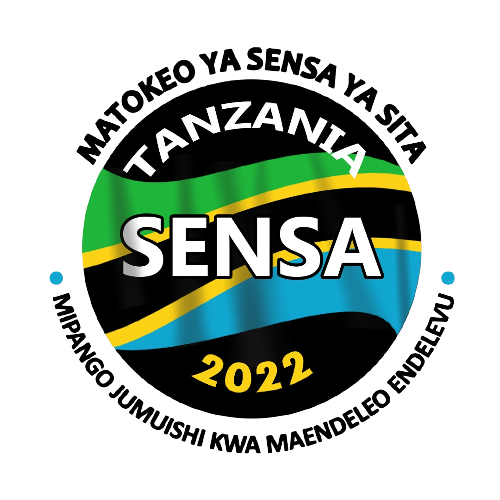THE UNITED REPUBLIC OF TANZANIA
MINISTRY OF LIVESTOCK AND FISHERIES
LIVESTOCK TRAINING AGENCY (LITA)
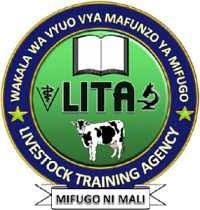
THE AGENCY BRIEF PROFILE
Address: P.O Box 2866 Dodoma| Phone number: +255 22 2863479/ +255 22 2863358| Fax: +255 22 28261908
Email: lita.hq@lita.go.tz| Website: www.lita.go.tz
ESTABLISHMENT OF THE LIVESTOCK TRAINING AGENCY
Livestock Training Agency (LITA) was established as a Government Executive Agency under the Ministry of Livestock and Fisheries in accordance with the Executive Agency Act No. 30 (Cap. 245) of the year 1997 and its subsequent amendments. The agency was established on 1st September, 2011 and started to execute its core functions in the financial year 2012/2013.
LITA was formed by merging six training centres which were previously recognized as Livestock Training Institutes (LITIs) under the Ministry responsible for Livestock Development. The previous six LITIs (with years of their establishments in brackets) include: Mpwapwa - Dodoma (1936), Morogoro - Morogoro (1948), Tengeru - Arusha (1952), Temeke - Dar es Salaam (1973), Buhuri - Tanga (1984), and Madaba - Songea (1989). Before establishment of LITA, trainings on livestock were operated by LITIs under the Directorate of Training, Research and Extension Services of the Ministry responsible for Livestock Development. After establishment of LITA, the LITIs became de facto and fully-fledged campuses under the agency in 2016 according to the National Council for Training and Education (NACTE) registration and accreditation procedures.
LITA CAMPUSES
Currently, LITA has eight (8) campuses which include (with their regions in brackets):Tengeru (Arusha), Mpwapwa (Dodoma), Morogoro (Morogoro), Buhuri (Tanga), Temeke (Dar es Salaam), Madaba (Ruvuma), Mabuki (Mwanza) and Kikulula (Kagera). These campuses are strategically located in different key agro-ecological zones and farming systems across the country. Location of LITA campuses countrywide enables the agency to serve the entire country community easily by providing diverse trainings according to specificity of the agro-ecological zones and farming systems. This position also allows the agency produce diverse livestock products and by-products in order to serve the Tanzanian community across the country. However, the LITA Headquarters is currently in Dodoma City, Njendengwa Area.
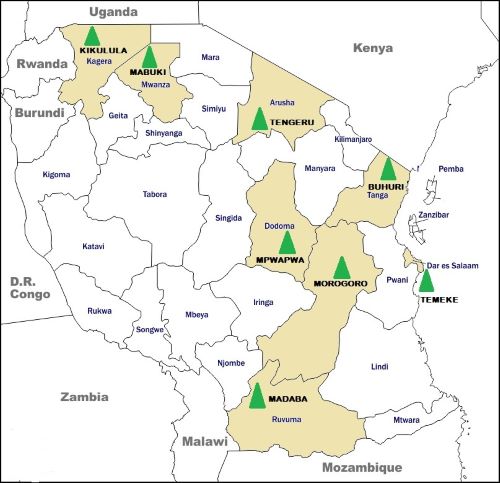
Figure 1: Location of all eight LITA campuses
VISION OF THE AGENCY
To become a centre of excellence in provision of Livestock Trainings and related services by 2025
MISSION OF THE AGENCY
To provide quality livestock training and education, produce quality livestock products and by-products, applied research and consultancy services and dissemination of appropriate technologies to public through appropriate service delivery mechanisms.
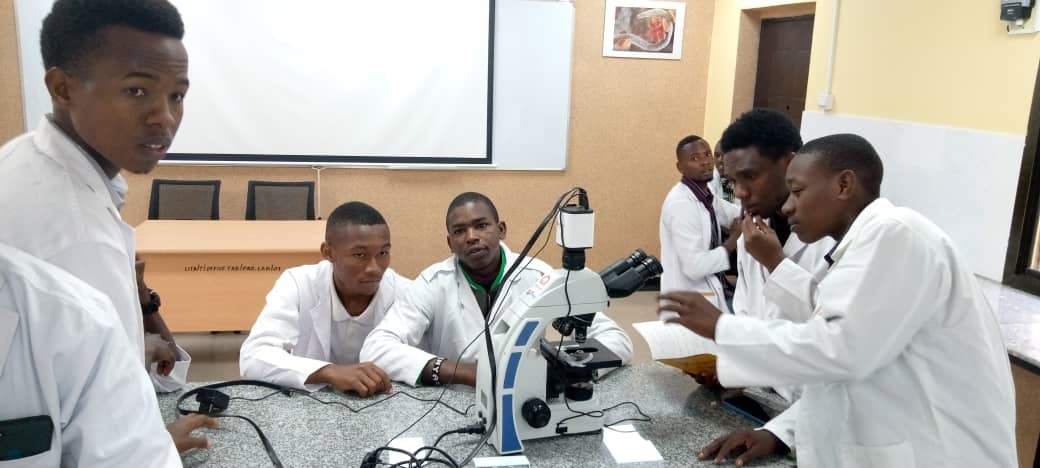
Figure 2: LITA students performing practical
CORE VALUES OF THE AGENCY
a)Diligence
b)Loyalty
c)Integrity
d)Courtesy
e)Confidentiality
f)Professionalism
g)Quality
CORE FUNCTIONS OF THE AGENCY
LITA is mandated with provision of high-quality livestock trainings, applied research, consultancy services and production of livestock products and by products to serve the Tanzanian community. However, the specific functions of the agency are as follows:
i.To provide quality trainings on Animal health and Production, Veterinary Laboratory Technologies, and Range management and Tsetse control.
ii.To produce quality livestock, livestock products and by products in order to serve the Tanzanian community.
iii.To provide quality consultancy and advisory services largely on Animal health and Production, and other related aspects.
iv.To conduct applied research on the areas under its mandates in order to enhance and maintain quality of trainings and education
v.To disseminate applied research findings and advisory services to different customers.
vi.To promote the Agency’s functions, products and services.
vii.To promote production, utilization and conservations of animal feed resources (pasture and forage).
viii.To establish and foster collaborations of mutual benefits with national and international stakeholders.
ix.To address crosscutting issues (environmental conservations, HIV/AIDS, gender, diversity, good governance) in its operations and
x.To promote development of human resources
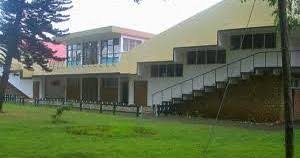
Figure 3: One of the Lecture theatres at LITA Campuses
COURSES OFFERED BY LITA CAMPUSES
Currently, the agency offers two types of courses, as follows:
i. Long-term courses (at Certificate and Diploma levels)
Provision of long-term courses is the first core function of LITA and the following courses are offered at its campuses:
| COURSES/PROGRAMMES | NTA LEVEL AWARDS | STUDY DURATION (YEARS) |
| Certificate in Animal Health and Production (CAHP) | 4-5 | 2 |
| Certificate in Veterinary Laboratory Technology (CVLT) | 4-5 | 2 |
| Diploma in Animal Health and Production (DAHP) | 4-6 | 3 |
| Diploma in Veterinary Laboratory Technology (DVLT) | 4-6 | 3 |
| Diploma in Range Management and Tsetse fly Control (DRMTC) | 6 | 1 |
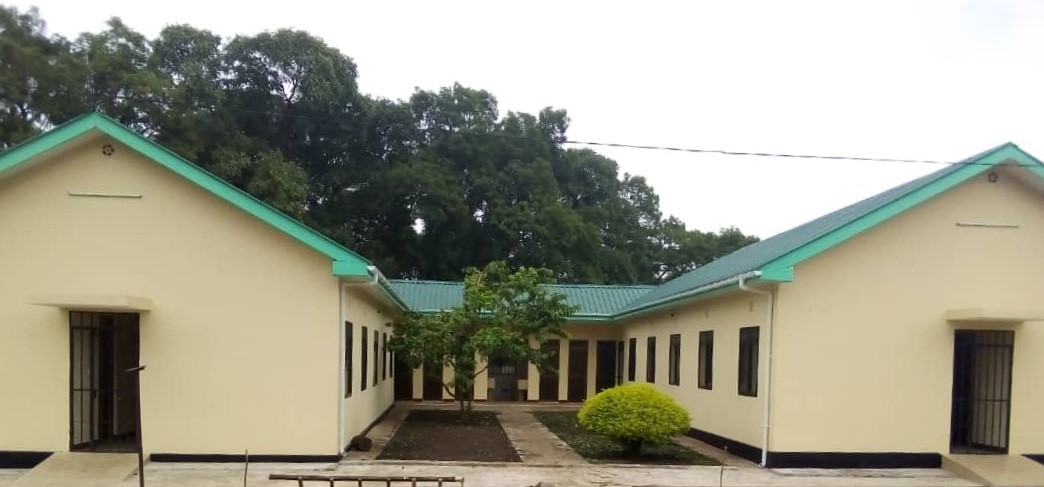
Figure 4: One of the hostel at LITA Campuses
ii. Short-term courses
Provision of short-term courses is the second core function of LITA. Under this programme, various livestock production aspects are addressed to different clients for the duration of one week to three months, depending on demand and course contents or coverage. The areas which are usually covered under this programme for all livestock species include animal husbandry practices, animal health, animal products processing, marketing and pasture and forages production. In most cases, short-term courses which are organised routinely are demand-driven and are funded by individual clients, government, Non-Profit Organization, Faith-based organisations, CBOs, external donors, and District Councils. In some cases, individual farmers do pay for trainings, especially if they want to acquire specific skills and competencies. Some of the short-term courses which are commonly covered are as listed below;
i.Integrated husbandry practices for different livestock species (dairy and beef cattle, goats, sheep, pigs, poultry, rabbits, dairy goats, etc.)
ii.Livestock products (milk, meat and hides and skins) processing
iii.Animal feeds processing
iv.Entrepreneurship along the livestock sector
v.Water Harvesting
vi.Organic Farming
vii.Beef Cattle Fattening
viii.Pasture and forage production
ix.Rangeland management and sustainable utilisation
x.Livestock and livestock products marketing
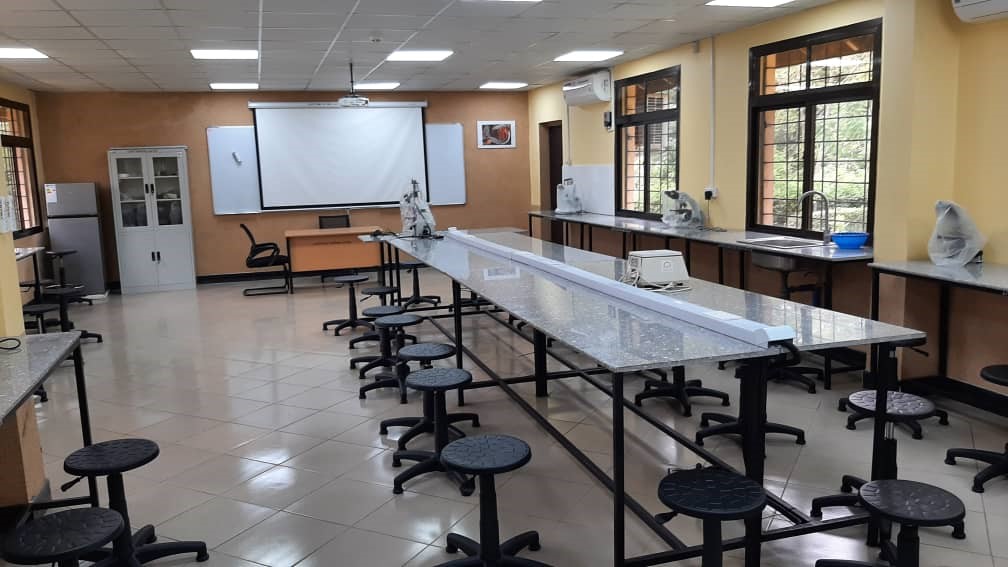
Figure 5: One of the Parasitology Laboratories at LITA Tengeru
Provision of applied research and consultancy services is a mandate of the agency which is intended to maintain the quality of trainings and other services offered by LITA. This component is used to asses and establish any emerging shortcomings and challenges inline with daily execution of roles and functions of the agency. Under this service relevant interventions are recommended in order to address any emerging shortcomings and challenges.
On the other hand, quality advisory and consultancy services are offered by LITA staff using user-friendly service delivery mechanisms according to clients’ demand, largely on some of the following areas;
i.Animal Husbandry Practices
ii.Animals products Processing
iii.Pasture and forage production
iv.Natural Resource Management
v.Livestock Farm Business Planning and Management
vi.Livestock Marketing and Management of livestock-based income
vii.Entrepreneurships and other opportunities in Livestock Sector
OUTREACH PROGRAMME
Outreach programme is employed by LITA campuses to also offer quality advisory and consultancy services to its clients using technical students. This programme is implemented for twofold purposes, one being part of capacity to LITA technical students to learn on how to handle and serve livestock farmers on-farm, and second being part of providing farmers with appropriate advisory services on livestock management practices. This plan is also part of LITAs community social responsibility (CSR) programme for maintenance of neighbourhood to its nearby livestock farmers for enhancing their senses of agency ownerships and social benefits. At least 2,000 livestock keeping households are reached in every academic year.
ORGANIZATION STRUCTURE
The Agency is headed by the Chief Executive Officer (or Rector) who is assisted by two Deputy Rectors, one being for Academics, Research and Consultancy, and the second one being for Planning, Administration and Finance, as indicated in the agency organogram herewith attached.
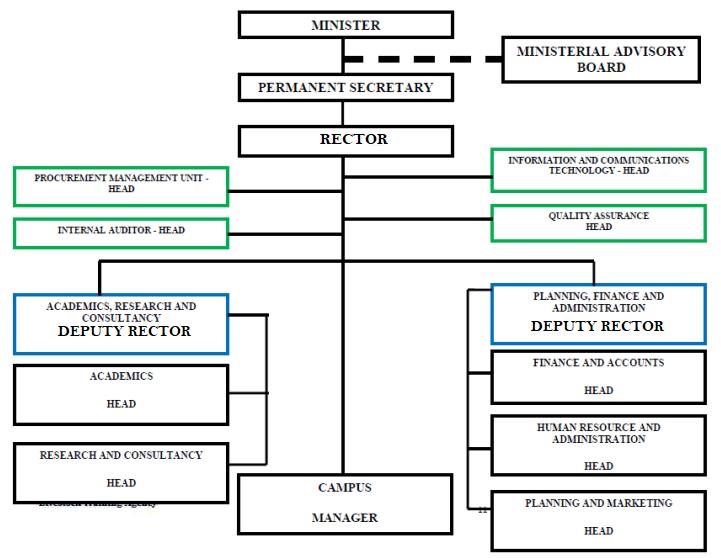
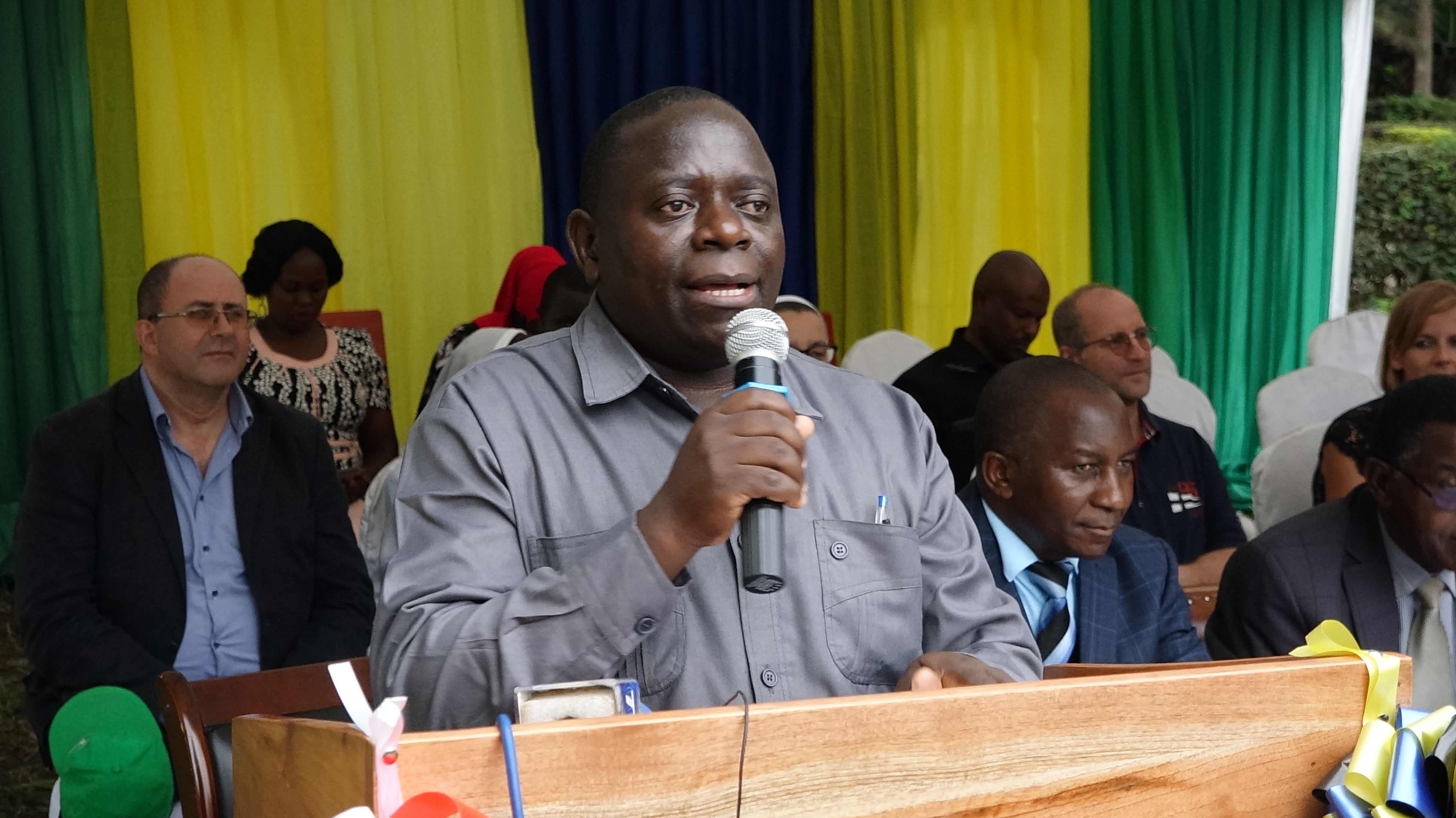
Figure 6: Chief Executive Officer of LITA
ADMISSION STATUS OF STUDENTS AT LITA CAMPUSES
Admission of students for certificate and diploma courses has been on increasing trend, from 2011/2012 to 2020/2021 academic years, as depicted in figure 7 below.
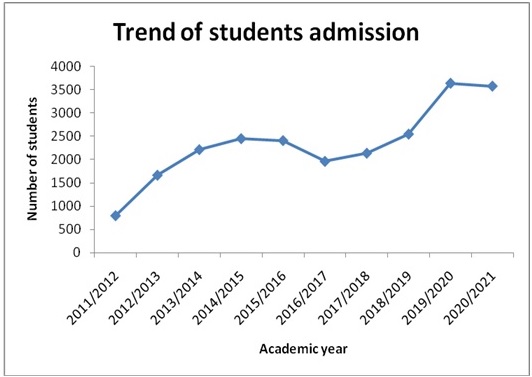
Figure 7: trend of students admission
FARM PRODUCTION
LITA campuses are involved in production of various products and by-products such as milk, meat, hide and skins etc.
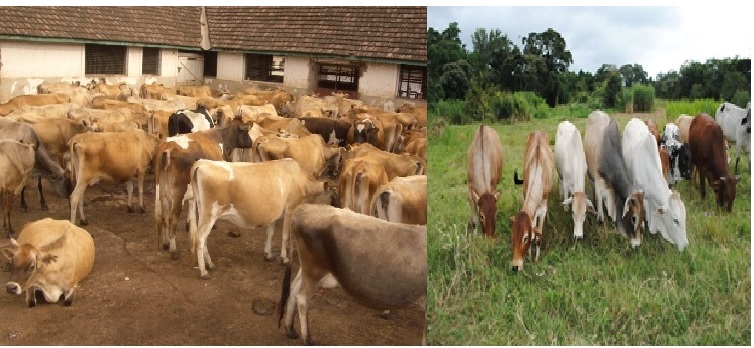
Figure 8: Beef and Dairy cattle
PASTURE PRODUCTION
LITA campuses are also involved in production of pasture used to feed the livestock. The produced pastures are either natural or established pastures. Pastures can also be conserved as the dry grasses (hay) or silage for feeding livestock especially in dry period where the pastures are scarce.
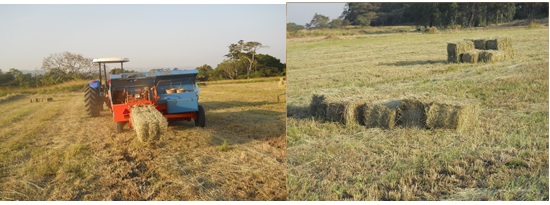
Figure 9: Hay baling at one of the LITA campuses
